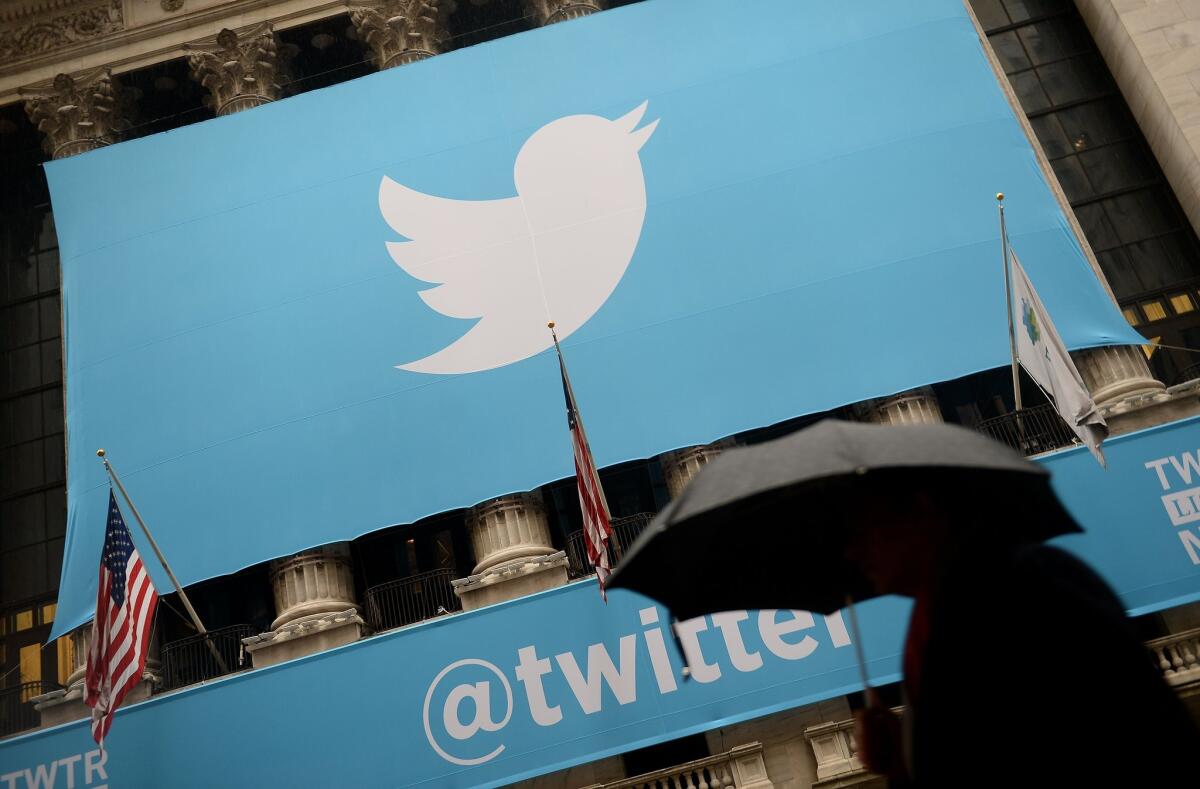Twitter revises policy banning threats and abuse

Twitter’s logo is on display on the front of the New York Stock Exchange. The company has revised its rules of conduct to emphasize that it prohibits violent threats and abusive behavior by users.
- Share via
Twitter has revised its rules of conduct to emphasize that it prohibits violent threats and abusive behavior by users, promising a tough stance at a time when critics are calling for the online service to adopt a harder line against extremists.
While the new policy unveiled Tuesday doesn’t substantively change what’s allowed, it may help Twitter answer criticism from politicians and others who say militant extremists are using the service and other social networks to recruit members and promote their violent agendas.
One advocate, however, said the real test will be how Twitter enforces the rules.
“The new rules are definitely an improvement,” said Rabbi Abraham Cooper of the Digital Terrorism and Hate Project at the Simon Wiesenthal Center in Los Angeles. “But the question is: Will they be accompanied by a more proactive attitude toward making sure repeat offenders are identified and permanently removed?”
A Twitter spokesman declined comment. In a blog post, the company said: “The updated language emphasizes that Twitter will not tolerate behavior intended to harass, intimidate, or use fear to silence another user’s voice. As always, we embrace and encourage diverse opinions and beliefs — but we will continue to take action on accounts that cross the line into abuse.”
The new policy says Twitter will suspend or shutter any user account that engages in “hateful conduct” or whose “primary purpose is inciting harm towards others.” The company previously said users could not promote or threaten violence and in April added a ban on “promotion of terrorism.”
Under “hateful conduct,” the new policy warns users: “You may not promote violence against or directly attack or threaten other people on the basis of race, ethnicity, national origin, sexual orientation, gender, gender identity, religious affiliation, age, disability, or disease.”
The new policy also explicitly bans “creating multiple accounts with overlapping uses” aimed at evading suspension of a single account. Critics say Twitter has previously made it too easy for extremists to create new accounts as soon as older ones are shut down.






